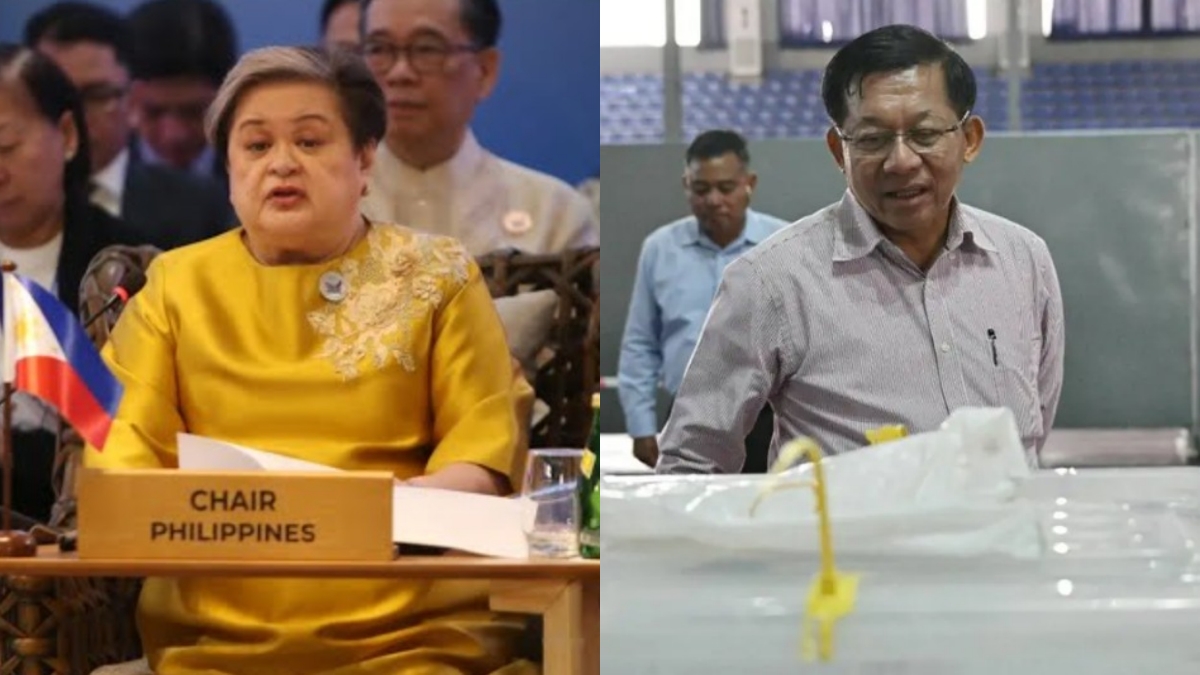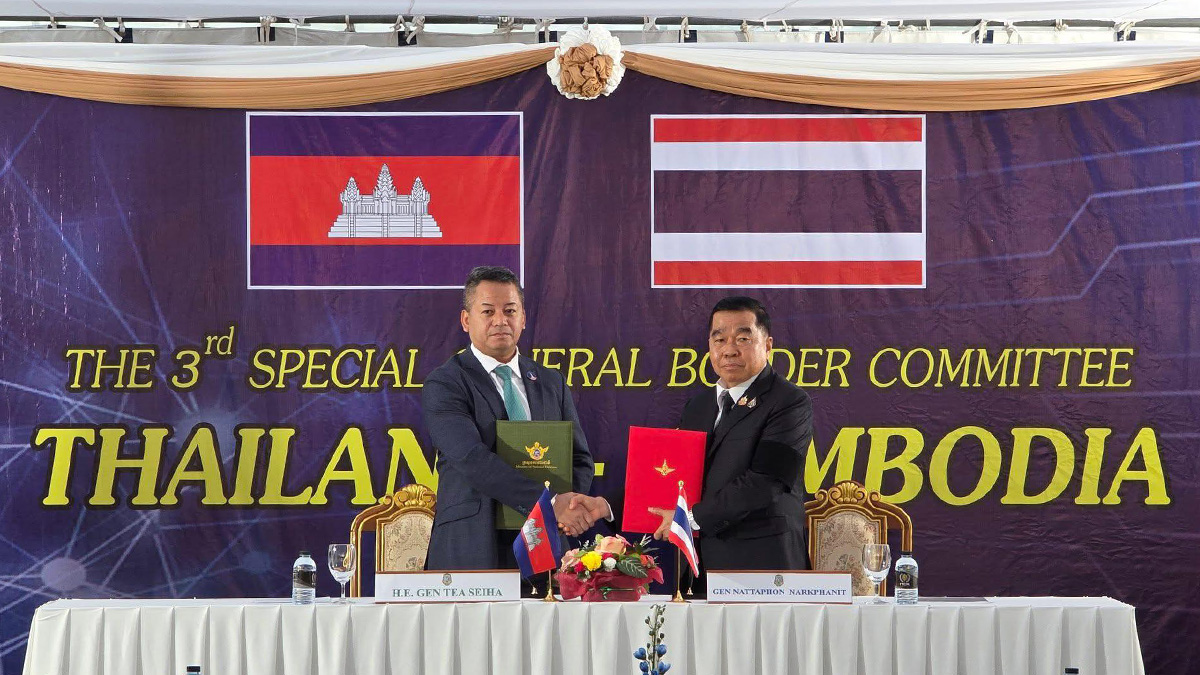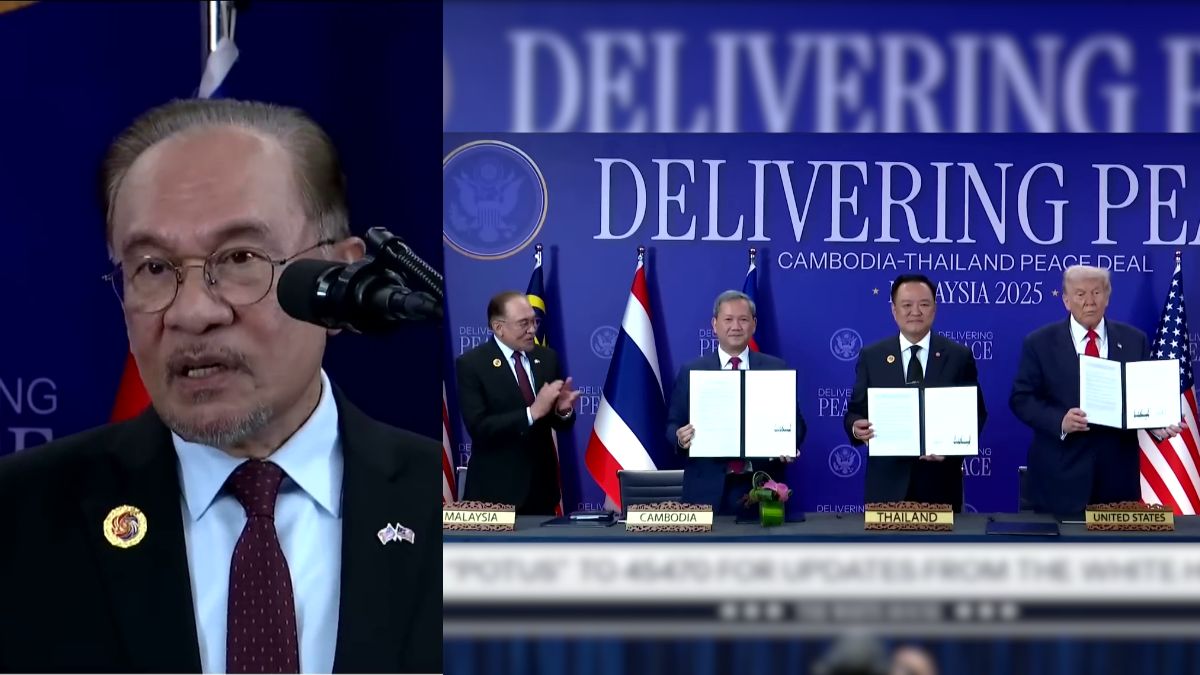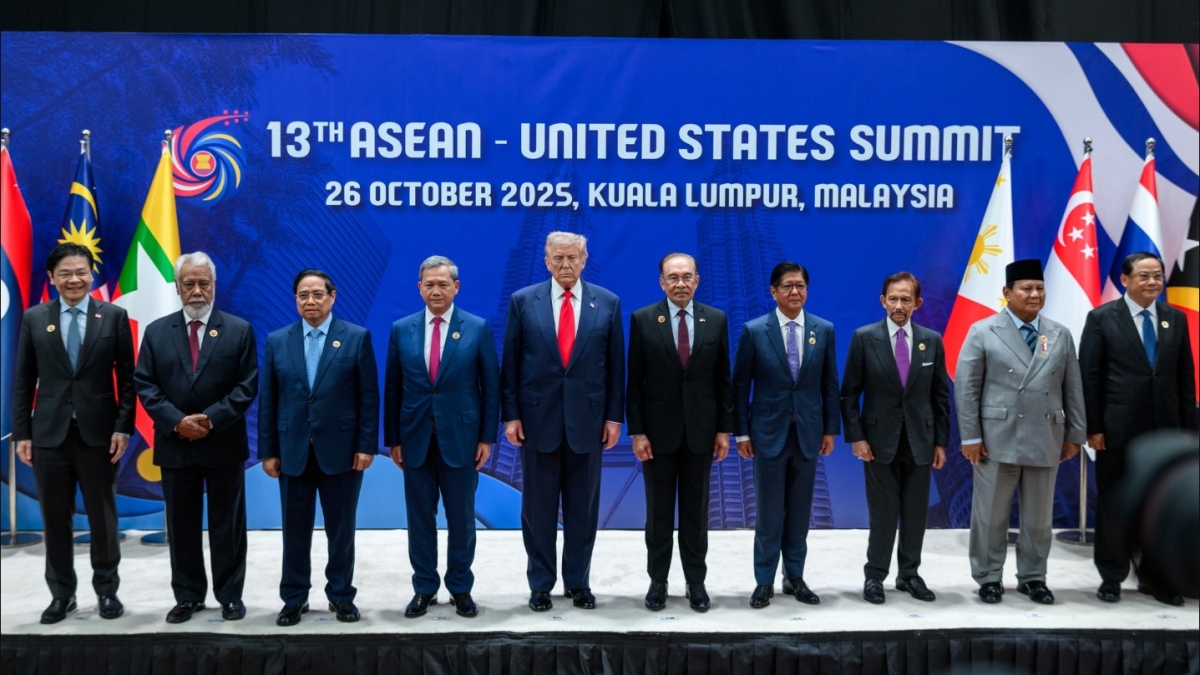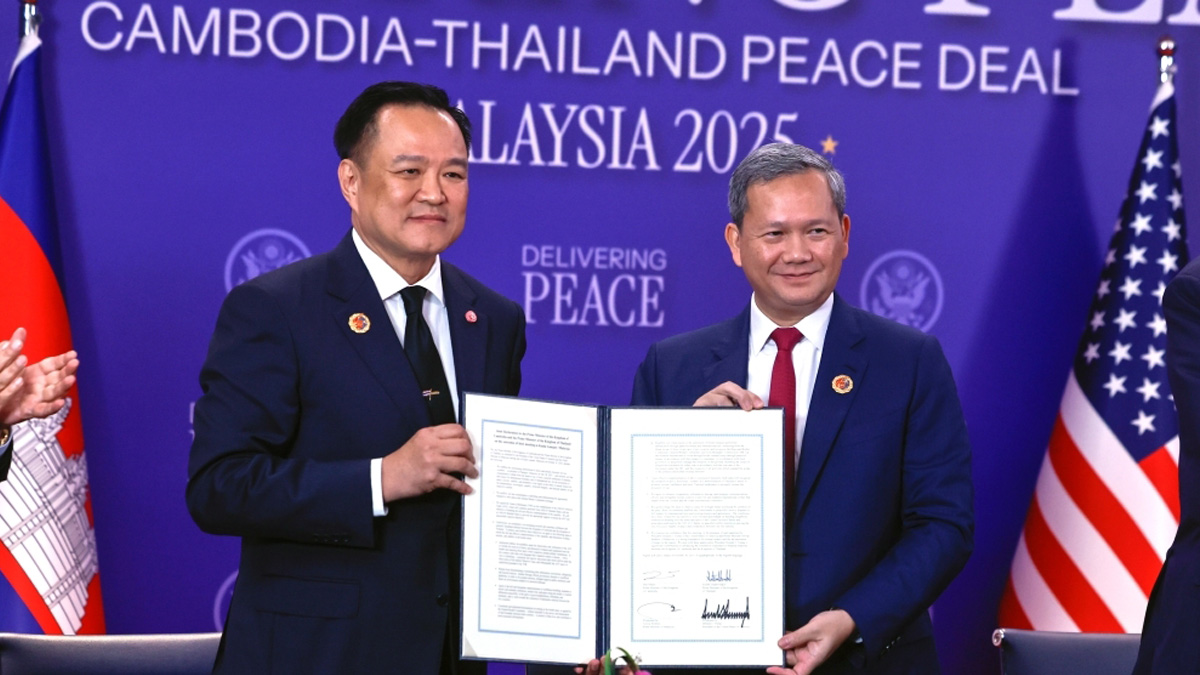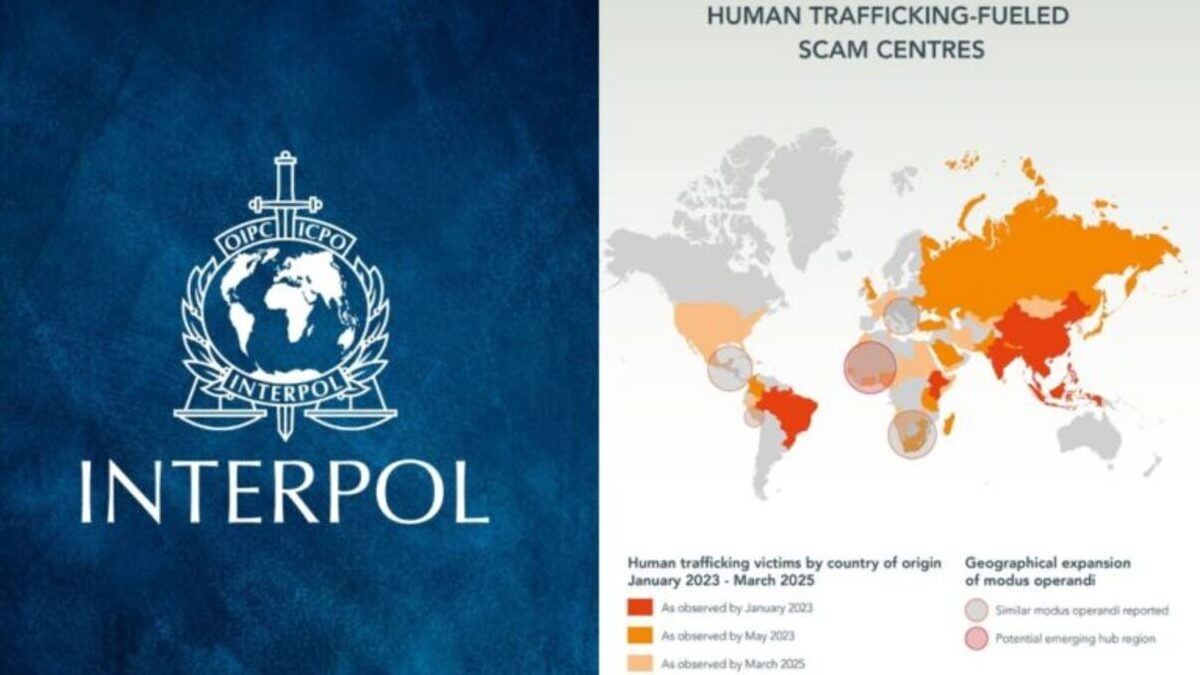Justice For Myanmar urges ASEAN to cut corporate ties with junta at Kuala Lumpur summit
Justice For Myanmar has urged ASEAN to cut all corporate and state ties with Myanmar’s junta during its 46th summit in Kuala Lumpur. The NGO says 54 companies in Thailand, Singapore, Malaysia, Vietnam, and Indonesia remain linked to junta-controlled enterprises despite ongoing atrocities.
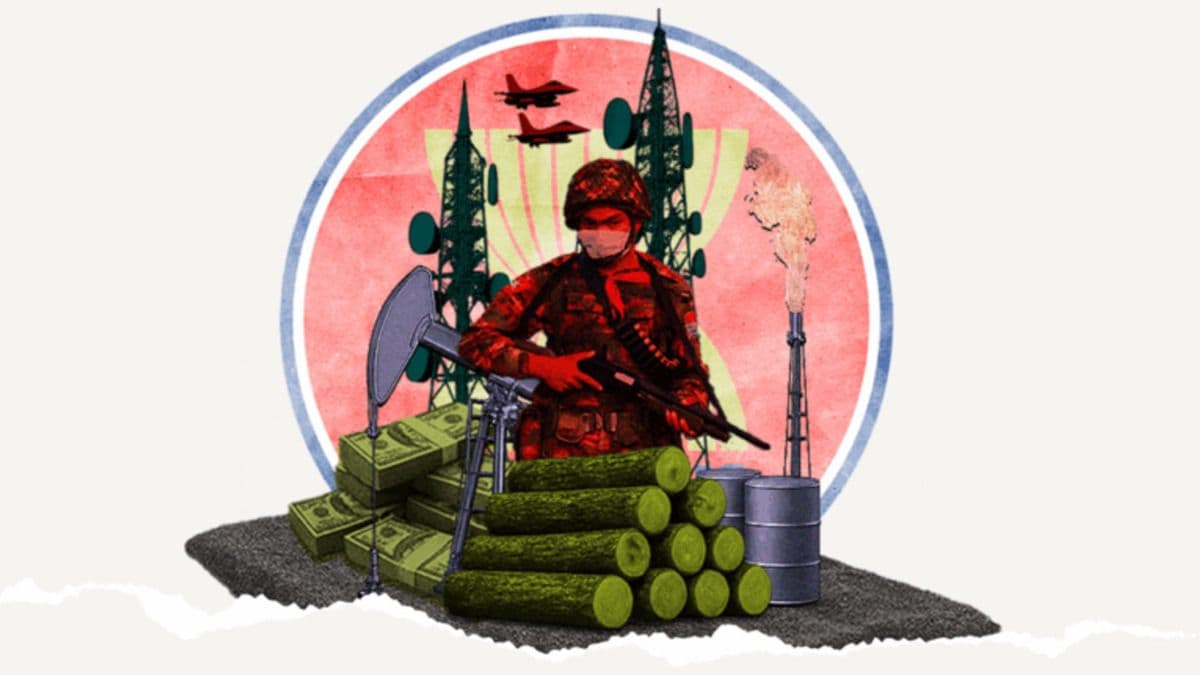
- Justice For Myanmar has accused 54 companies in ASEAN states of enabling Myanmar’s junta through business ties.
- The group demands ASEAN end corporate and governmental links, focusing on aviation fuel, oil, gas, and financial transactions.
- The call comes as ASEAN leaders gather in Kuala Lumpur, with pressure mounting for Malaysia’s chairmanship to deliver stronger action.
Justice For Myanmar (JfM), a rights advocacy group, has issued a strong appeal for Southeast Asian governments and businesses to cut ties with Myanmar’s military junta. The statement coincides with the 46th ASEAN Summit, hosted by Malaysia in Kuala Lumpur from 26 to 27 May 2025.
In its latest report, Complicity in Crimes, JfM accused 54 firms from Thailand, Singapore, Malaysia, Vietnam, and Indonesia of maintaining links with junta-controlled enterprises more than four years after Myanmar’s military seized power in the 1 February 2021 coup.
The NGO says that by continuing business with junta entities, these companies are enabling war crimes, crimes against humanity, and systematic repression.
Companies named across five ASEAN states
Among the firms listed are Thailand’s PTTEP, which operates major gas projects with the junta, and Singapore’s Interra Resources, accused of supplying more than US$200 million worth of oil.
Malaysia’s ENRA and Uzma Group were cited for servicing junta-linked gas projects, while Vietnam’s state-owned Viettel Global co-owns the Mytel telecom network with a junta conglomerate.
Timber exporters in Singapore, including Greenply Alkemal and Valency International, were accused of shipping goods through junta-controlled enterprises. Banks from Thailand, Malaysia, Vietnam, and Singapore were also flagged for continuing to hold accounts for sanctioned junta banks, facilitating fuel and military-related transactions.
JfM noted that many of the firms are state-owned or enjoy government backing, making their involvement not merely commercial but political.
Human toll highlighted
The group underscored the humanitarian cost of ASEAN’s failure to act. It reported that over 3.5 million people have been displaced and thousands killed since the coup.
JfM highlighted recent atrocities, including an airstrike in Sagaing earlier this month that killed dozens of civilians, among them 22 children and two teachers.
“ASEAN’s failure to address corporate complicity has allowed the junta to intensify its brutal campaign of terror that has killed thousands of civilians and displaced millions with total impunity,” JfM said in its statement.
Calls to end aviation fuel and military support
The report stressed that ASEAN businesses are supplying vital resources such as aviation fuel and surveillance technology, along with revenue from oil, gas, timber, and land leases.
JfM spokesperson Yadanar Maung stated: “While international sanctions have attempted to isolate the junta, companies in the ASEAN region continue to carry out business as usual. This directly undermines efforts to cut off the junta’s access to funds and aviation fuel.”
The group called for an immediate halt to aviation fuel and arms supplies, as well as a complete cessation of financial transactions and tax payments to junta-controlled bodies.
It also demanded an end to land lease agreements that generate long-term revenue for the military through real estate and foreign investment.
ASEAN consensus under scrutiny
ASEAN’s Five-Point Consensus on Myanmar, adopted in April 2021, called for an immediate cessation of violence, dialogue among all parties, humanitarian assistance, and the appointment of a special envoy.
However, JfM argued that the consensus has failed, pointing to intensified military attacks and ongoing support from ASEAN states.
The group urged ASEAN to adopt a new framework aligned with the aspirations of Myanmar’s people, led by civil society and democratic actors.
“As leaders of ASEAN gather in Malaysia, they must take a clear stand for human rights,” said Maung. “It is high time ASEAN ends this ongoing complicity with the Myanmar junta and respects the rights and democratic aspirations of the people of Myanmar.”
Corporate responses
Interra Resources, one of the firms named, rejected JfM’s allegations. In a statement, the Singapore-based company stressed that its Improved Petroleum Recovery Contracts (IPRCs) with Myanmar’s state-owned Myanma Oil and Gas Enterprise (MOGE) predated the 2021 coup.
The company said it holds a 60% stake in Goldpetrol Joint Operating Company (GJOC), which manages oil fields in Chauk and Yenangyaung under a production-sharing contract secured in 1996 and extended in 2017.
Interra insisted it has no control over how MOGE uses oil from GJOC operations, arguing that its contractual obligations were entered under Myanmar’s civilian government.
JfM dismissed this defence, stating: “The fact that the IPRCs were entered into before the military coup attempt in 2021 cannot provide an excuse for the company’s decision to continue business with MOGE after the military illegally seized control.”
The NGO maintains that continued dealings with MOGE amount to enabling war crimes, regardless of when contracts were signed.
Civil society expectations for Malaysia’s chairmanship
The Kuala Lumpur summit is Malaysia’s first ASEAN chairmanship of 2025. Civil society groups are pressing Malaysia to push for stronger regional measures, citing the ineffectiveness of the existing consensus.
Observers say Malaysia faces a test of leadership as ASEAN’s credibility is at stake amid mounting pressure from rights organisations and Myanmar’s diaspora.
ASEAN leaders are expected to discuss Myanmar extensively, though past summits have yielded limited concrete action.
UN warnings add to pressure
Earlier this year, the United Nations condemned Myanmar’s military for launching attacks in regions affected by the 28 March earthquake, worsening the humanitarian crisis.
On 11 April, UN Human Rights Office spokesperson Ravina Shamdasani reported that the military had conducted over 120 attacks since the quake, including aerial and artillery strikes. More than half occurred after the junta declared a ceasefire on 2 April.
“Civilians are continuing to suffer in Myanmar as military operations persist, despite ceasefires declared after last month’s tragic earthquake,” Shamdasani said.
The UN has urged the international community to cut off all support to the junta. JfM’s report echoes this call, specifically targeting ASEAN’s role in enabling the regime.
Outlook as summit continues
The 46th ASEAN Summit will be closely monitored by human rights groups and Myanmar’s diaspora communities, who have renewed calls for an effective regional response.
JfM warned that without decisive action, ASEAN risks complicity in the junta’s atrocities and further erosion of its credibility on human rights.


